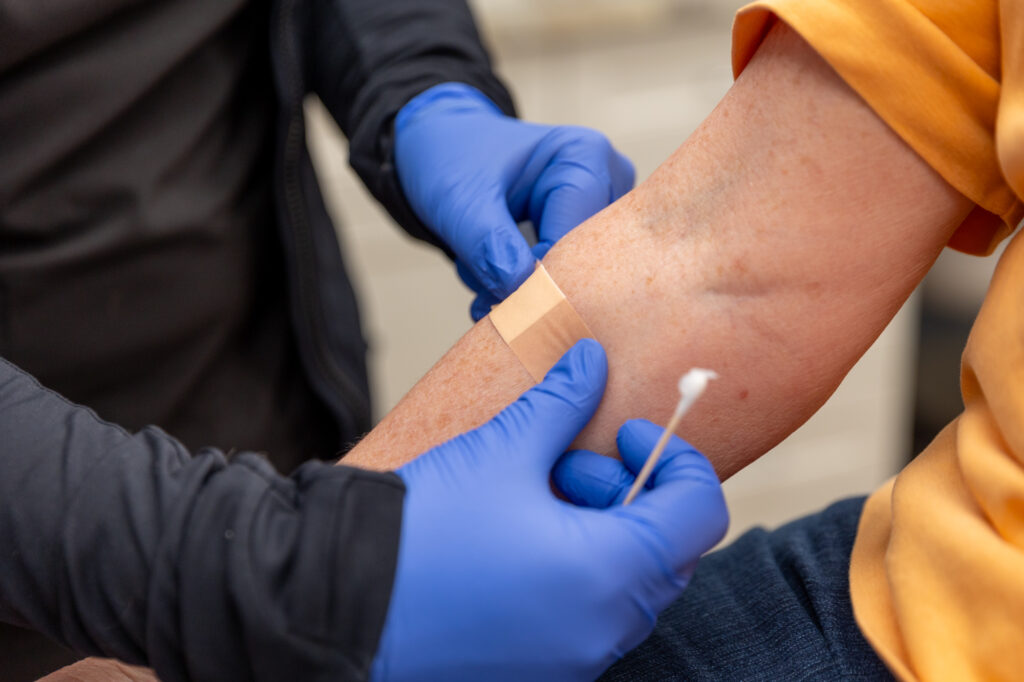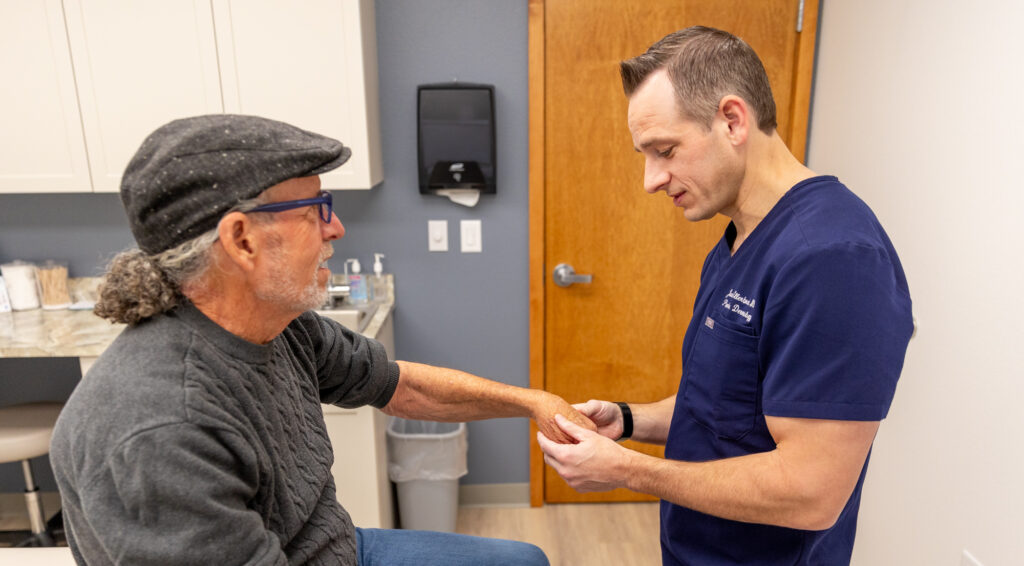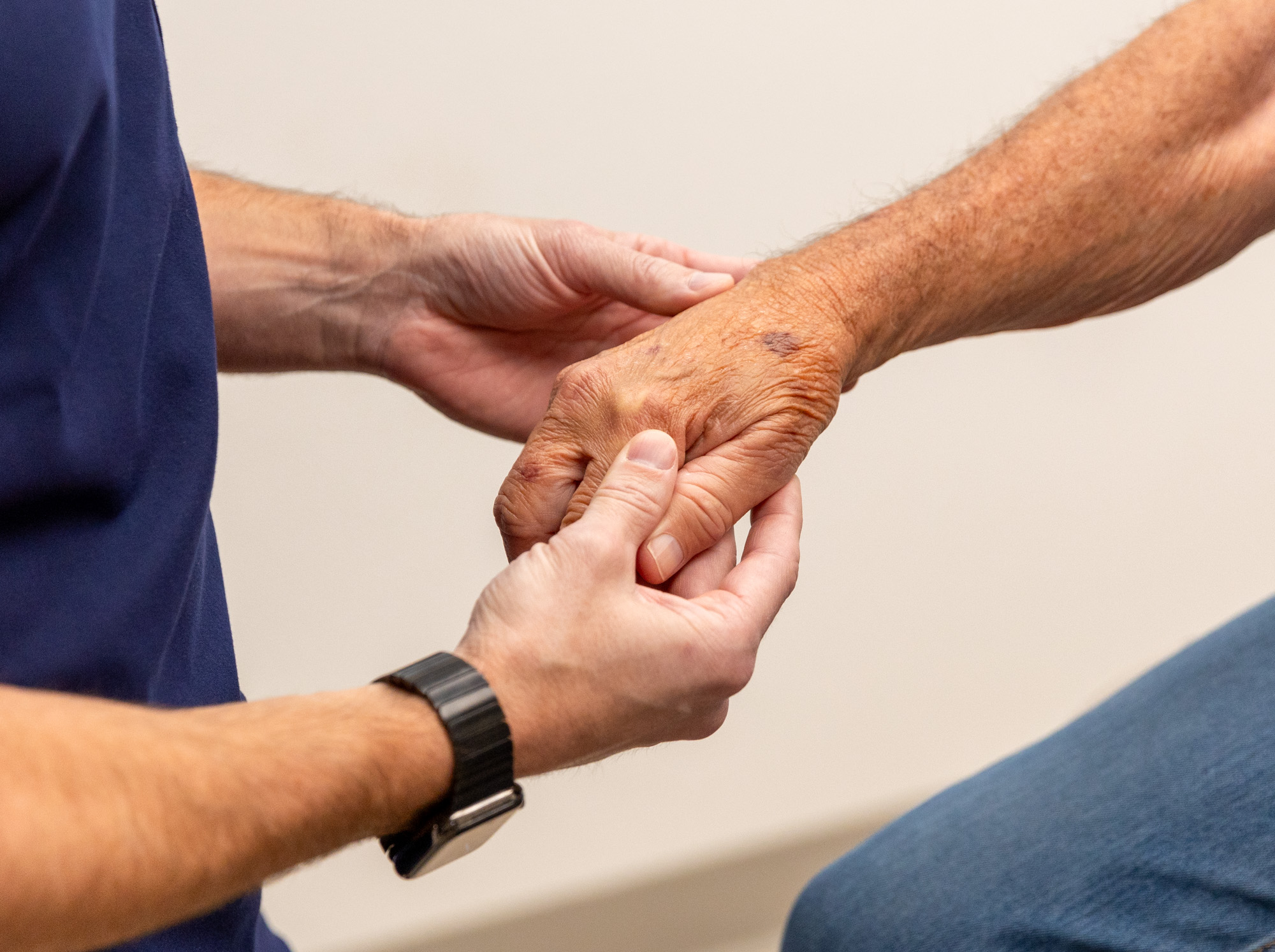A faulty immune response can kick the body into overdrive, producing new skin cells rapidly. This rapid production of cells causes them to pile up in patches on the surface of your skin, causing scaly patches that often itch and might also sting, burn, or feel painful and tight. Science doesn’t completely understand the cause of the faulty immune response, but some factors may correspond to psoriasis flare-ups, like exposure to extreme weather, smoking, infections, certain medications, etc.
Don't Suffer Under Psoriasis


Over 8 million Americans have psoriasis, and if you’re one of them, you know that psoriasis is no joke.
Symptoms can include a rash with patches of itchy and scaly skin, pain that makes it hard to sleep and concentrate, and dry, cracked skin that may even bleed.
If you are looking for a psoriasis specialist in Waterloo, Premier Dermatology can help! We offer a range of treatment options for psoriasis, and when you come in to meet with us, we will develop a custom treatment plan to improve your quality of life.
What Causes Psoriasis?
Immune Response
A faulty immune response causes your skin cells to reproduce rapidly and accumulate in thick scaly patches.
Genetics
A family history of psoriasis increases your risk of developing it.
Infections
Infections like strep throat or skin infections can trigger psoriasis.
Stress
Hormone level changes associated with stress can also trigger an outbreak of psoriasis.
Cold Weather
Dry and cold climates can trigger psoriasis.
Certain Medications
Medications like high blood pressure drugs and beta-blockers may contribute to the development of psoriasis.
About Premier Dermatology
Premier Dermatology is a leading provider of skincare, including dermatitis conditions like eczema and psoriasis. Our highly trained staff is equipped to treat a wide variety of dermatological conditions. Our practice is overseen by board-certified dermatologist Dr. Justin Ellerbroek, our acne, eczema, and psoriasis specialist in Waterloo.

Frequently Asked Questions
Unfortunately, there is no cure for psoriasis. However, with the right treatment plan, the symptoms of psoriasis can be managed and sometimes cleared up completely! This treatment plan will probably include a combination of a healthy lifestyle, a daily skincare routine, medicine, and identifying and avoiding triggers. Having the help of a psoriasis specialist in Waterloo, like a dermatologist, can help ensure that you are diagnosed with the right condition and given a treatment plan customized to your needs.
Eczema and psoriasis cause similar symptoms in similar places, making them difficult to tell apart to the untrained eye. However, some tell-tale differences often distinguish them from one another. A patch of eczema may have blurry boundaries, while a patch of psoriasis (particularly plaque psoriasis) is often delineated from normal skin with a sharp boundary. The itchiness associated with psoriasis is often reported to be milder than eczema, which sometimes drives people to itch the eczema patch until it bleeds.
A trained dermatologist can provide you with the correct diagnosis. Whether you’re looking for an eczema or psoriasis specialist in Waterloo, Premier Dermatology can help.
No. Because psoriasis is thought to be caused by the immune system, it is not contagious and can’t be transmitted to another person through physical contact.
There is some evidence to suggest that psoriasis can be passed on genetically. This is likely due to genes being passed from parent to child that prompt the faulty immune response that causes psoriasis. Ongoing research has found links between psoriasis and more than two dozen genes. As research into the genetic causes of psoriasis continues, we get closer to developing a cure.
Psoriasis can develop at any age. A third of psoriasis cases develop in childhood, but it more frequently begins between ages 15 and 25. Unfortunately, psoriasis is not a condition that children can “grow out of.” If you go an extended time without a psoriasis flare-up, you are considered to be in remission. Periods of remission commonly last between a month and a year, though in some cases, people have gone multiple years without a flare-up!
Psoriatic arthritis is a medical condition linked to psoriasis. About 30% of psoriasis sufferers will develop psoriatic arthritis as well. It causes inflammation and swelling in the joints, which often leads to pain and stiffness. Depending on the type of psoriatic arthritis, you may experience inflammation in different sets of joints with different corresponding symptoms appearing on your skin as well.
Unfortunately, like psoriasis, psoriatic arthritis has no cure, and focus is usually on managing its symptoms.





